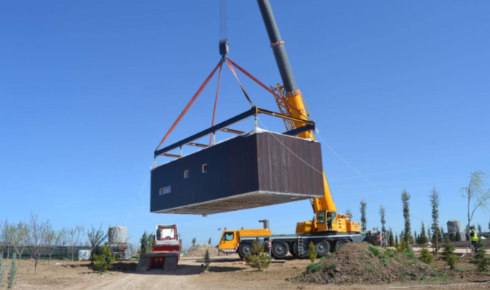5 Reasons to Choose Commercial Modular Construction

When it comes to constructing commercial buildings, businesses are constantly searching for efficient, cost-effective, and sustainable solutions. One increasingly popular option is commercial modular construction. This method involves building a structure off-site in a controlled factory environment and then assembling the parts on-site.
More businesses are turning to modular construction because it offers a variety of benefits, including faster project timelines, lower costs, and a reduced environmental impact. In this article, we will explore five key reasons why choosing modular construction might be the right decision for your commercial project.
1. Faster Construction Time
One of the most significant advantages of commercial modular construction is the speed at which buildings can be completed. Since the construction of modular components occurs in a factory while the site preparation is underway, the entire process is faster than traditional methods.
This overlap in work processes means that projects can be finished in a fraction of the time it would take with conventional construction methods. With modular construction, businesses can move into their new buildings sooner, which helps to reduce operational downtime and loss of revenue.
2. Cost-Effective Solution
Cost savings are another major reason why many companies opt for modular construction. Because modular buildings are constructed off-site in controlled environments, the risk of delays due to weather or unforeseen site challenges is significantly reduced.
Additionally, fewer labor costs are incurred, as fewer workers are needed on-site. The factory-based construction process is also highly efficient, which helps to lower the cost of materials and transportation.
3. High-Quality Standards
Although modular buildings are constructed off-site, they adhere to the same building codes and quality standards as traditional constructions. Modular construction companies use strict quality control measures to ensure that every module is built to last.
In a controlled factory environment, there are fewer variables that can impact the quality of construction, such as weather or poor on-site conditions. Additionally, the materials used are often tested and inspected before assembly, guaranteeing a high-quality finished product.
4. Environmental Benefits
Modular construction is an environmentally friendly choice. The process generates less waste compared to traditional construction because materials are pre-measured and pre-cut in the factory. This precision reduces the amount of unused material that would typically be thrown away.
Moreover, the ability to reuse modules or repurpose materials in future projects also supports sustainability. Additionally, modular buildings are designed to be energy-efficient, with insulation and materials that help reduce energy consumption.
5. Flexibility and Scalability
Another key advantage of modular construction is the flexibility it offers. Modular buildings can be easily expanded or modified to meet changing business needs. Whether you need more office space or want to add additional rooms in the future, modular construction allows for easy adjustments.
Businesses can also choose from a variety of design options to customize their buildings, making it a versatile solution for many different types of commercial properties. This flexibility is especially useful for companies that are rapidly growing or need to adapt quickly to market changes.
Conclusion
In conclusion, commercial modular construction offers several significant benefits that make it a smart choice for businesses looking to build or expand. The faster construction times, cost-effectiveness, high-quality standards, environmental benefits, and flexibility all contribute to its growing popularity.
As businesses continue to seek efficient, sustainable, and adaptable solutions, modular construction is proving to be a reliable option that meets these demands.



